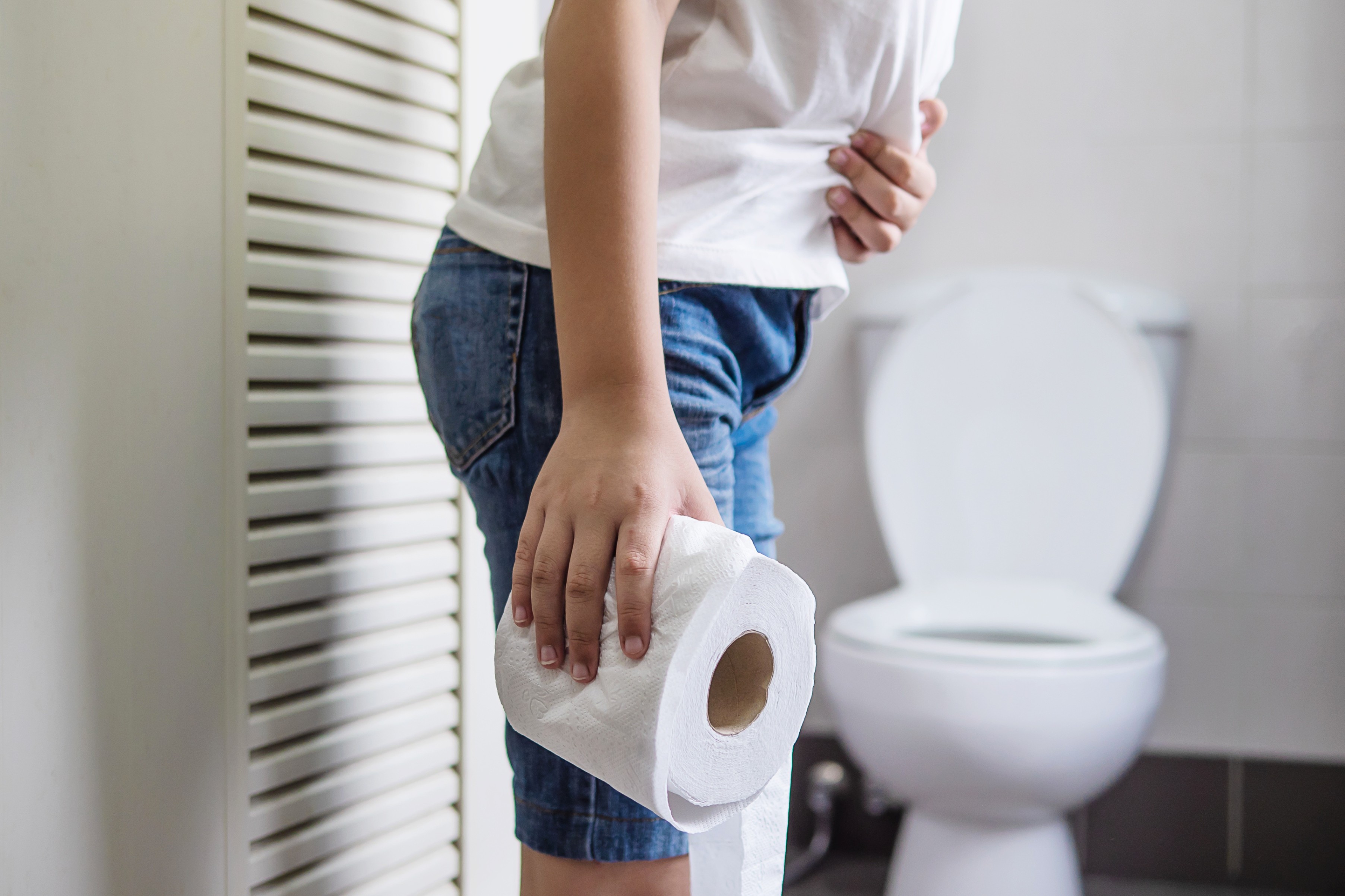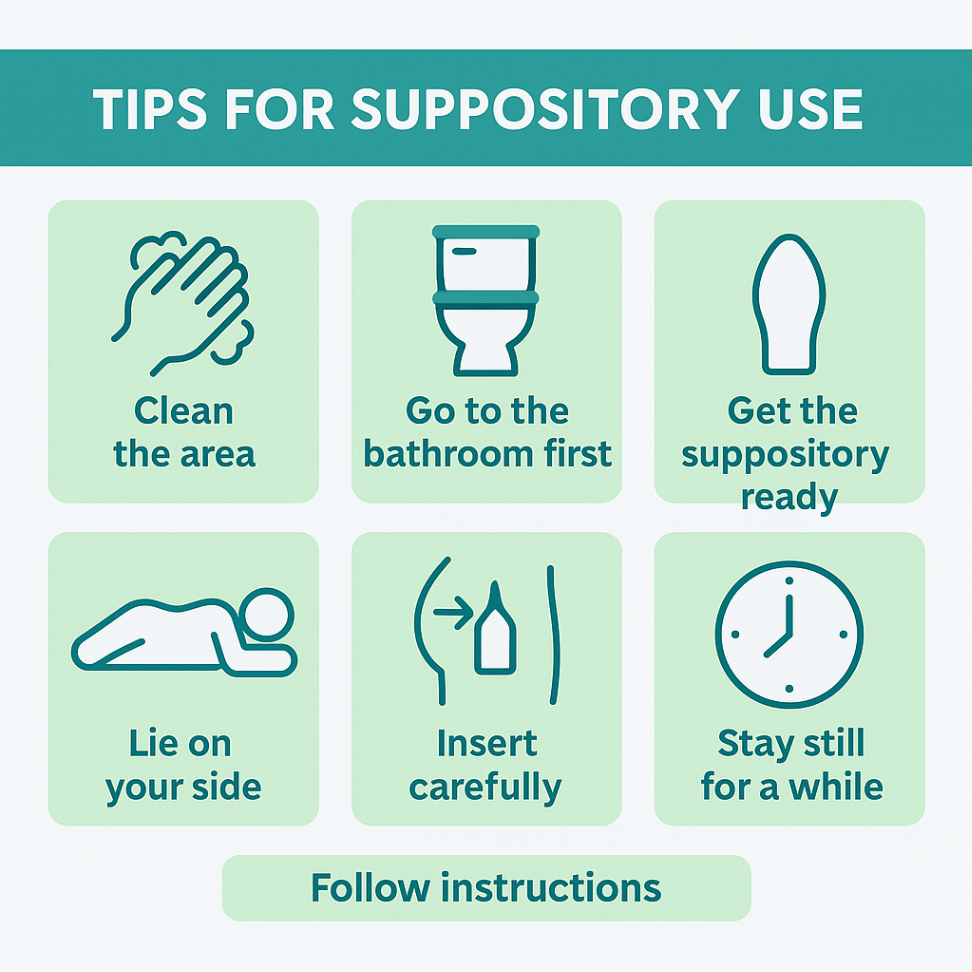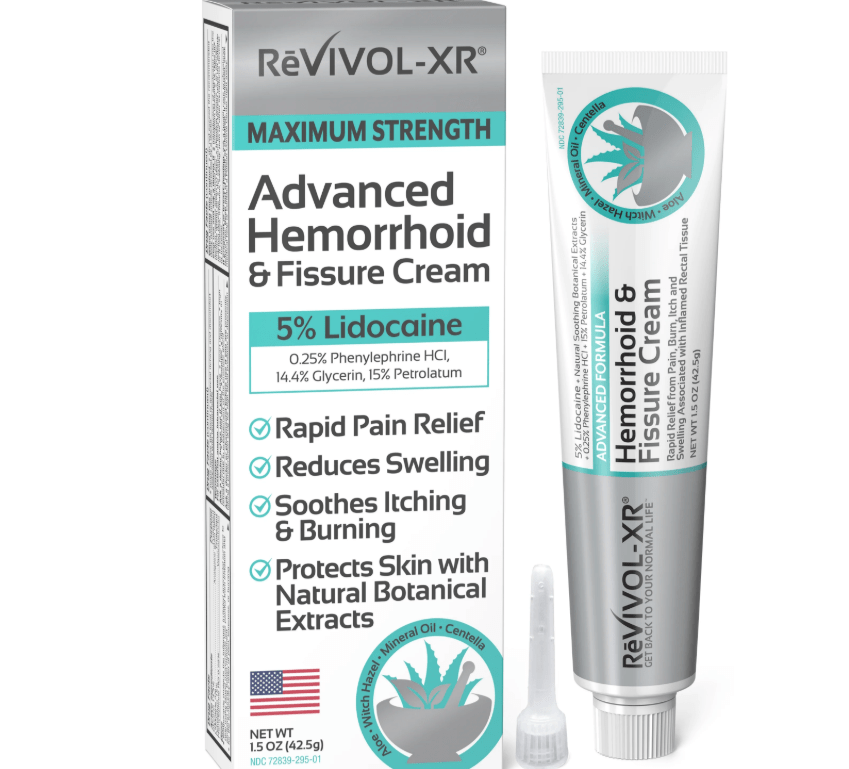FAST & FREE 📦 3-DAY SHIPPING!*

TLDR
|
|---|
If you’re dealing with the burning, itching, or swelling of external hemorrhoids, you’ve likely tried everything from creams to cold compresses, yet nothing seems to provide lasting relief. Hemorrhoid suppositories often come up as a treatment option, but here’s the catch: they’re typically inserted internally. So the big question remains, do suppositories actually help with external hemorrhoids or are they only meant for internal ones?
This blog clears up the confusion. We’ll break down how suppositories work, when they might help, and what you can realistically expect if you’re using them for external symptoms. Whether you’re looking for fast relief or a smarter way to manage flare-ups, you’ll find the answers here.

Hemorrhoids are swollen veins located in the lower rectum and around the anus.. They can experience itchiness, pain, or even bleeding, especially when using the toilet. This is a widespread problem that occurs when there’s too much pressure in that area, such as when you’re constipated, sit for too long, or are overweight.
There are two types:
Internal hemorrhoids are inside your rectum and usually don’t hurt much.
External hemorrhoids are under the skin near your anus and can be painful or lumpy.
Sometimes, hemorrhoids can resolve on their own or with simple home remedies, such as increasing fiber intake or using topical creams. However, if the pain or swelling persists, you may require proper treatment, such as medication or suppositories. Knowing what type you have and what’s causing it makes it easier to treat and feel better faster.
Hemorrhoid suppositories are primarily designed to treat internal hemorrhoids, as they’re inserted into the rectum to deliver medication directly to swollen blood vessels inside. Their main function is to reduce inflammation, soothe irritation, and ease bowel movements from within.
However, if you’re dealing with external hemorrhoids, which occur under the skin around the anus, suppositories may offer limited relief. While they can help reduce straining during bowel movements (which benefits both internal and external types), they don’t directly treat the outer swelling or pain.
For external hemorrhoids, topical treatments like creams, ointments, and medicated wipes are often more effective. These provide direct contact with the affected area, easing burning, itching, and discomfort more quickly.

Using a suppository the right way can help you get better results and feel relief faster. Here’s a simple step-by-step guide:
Gently wash around your bottom using mild soap and warm water. Rinse well and pat dry with a soft towel. A clean area helps the medicine work better and prevents irritation.
Try to have a bowel movement before using the suppository. This helps it stay in place and work properly. Using it beforehand may reduce its effect.
Let it sit at room temperature or wet it slightly with water. This makes it easier and more comfortable to insert. Cold or hard suppositories can be uncomfortable.
Lie on your left side and bend your right knee slightly. This position makes it easier to insert the suppository. It also helps it stay in place.
Gently push the pointed end into your rectum, just enough so it stays inside. Don’t force it too deep. Always wash your hands before and after.
Avoid moving around too much after insertion. Try not to go to the toilet for at least one hour. This gives the medicine time to work.
Read the label carefully or follow your doctor’s advice. Most people use it up to four times a day. Don’t use more than directed.
If your symptoms don’t get better in a week, talk to a doctor for more help. Always follow medical advice to stay safe and get the best results.
If you’re dealing with internal hemorrhoids, you’ve likely come across suppositories as a treatment option. But how well do they work, and are they right for you?
Best suited for internal hemorrhoids: Suppositories are inserted into the rectum, where they release medication directly to inflamed veins, calming pain and irritation from the inside.
They offer longer-lasting relief: Unlike creams, suppositories melt slowly and stay in contact longer, making them effective after bowel movements when irritation often flares.
Ingredients target pain and inflammation: Common components like hydrocortisone or mineral oil reduce swelling, ease discomfort, and protect the rectal lining, while coconut oil suppositories provide added benefits for those seeking alternative relief.
External hemorrhoids may not benefit directly: These don’t reach the outer area, but can still help by softening stool and making bowel movements easier, reducing pressure overall.
They’re not a permanent fix: Suppositories relieve symptoms, not root causes. Without fiber, hydration, and lifestyle changes, flare-ups are likely to return.
Proper usage matters: For best results, use after a bowel movement and lie down for a bit. Misusing them, especially with external issues, can make things worse.
Consult a doctor if symptoms persist: If relief doesn’t come within a week or symptoms worsen, see your doctor. Persistent discomfort could signal other issues or the need for advanced care.
Choosing between a suppository and a cream depends on where your hemorrhoids are and what kind of relief you need. Suppositories work better for internal hemorrhoids, as they are absorbed by the rectal tissue and treat the problem from within. On the other hand, creams and ointments (topical treatments) are better for external hemorrhoids because they go directly on the skin to reduce mild pain, swelling, and itching.
Here’s a quick and simple comparison:
Treatment Type | Ideal For | Common Ingredients | Application Method |
|---|---|---|---|
Suppositories | Internal Hemorrhoids | Cocoa butter, Mineral oil | Inserted into the rectum |
Topical Treatments | External Hemorrhoids | Witch hazel, Zinc oxide | Applied to external skin |
Both treatments serve different needs, so consulting medical advice ensures a safer and more effective choice for your condition.
Hemorrhoid suppositories can help you feel better fast, but they are not a permanent cure. They work by reducing swelling, easing pain, and calming irritation, but only for a short time. They don’t fix the root cause of hemorrhoids, like straining during bowel movements, sitting for too long, or having a low-fiber diet.
To keep hemorrhoids from coming back, you may need to make some lifestyle changes. Drinking more water, eating high-fiber foods, avoiding prolonged periods of sitting, and not straining during bathroom use can make a significant difference. In some cases, medical procedures may be needed for long-term relief.
If your symptoms persist or worsen, it’s essential to consult a doctor. They can guide you toward the right treatment plan for lasting results. Suppositories are helpful, but they’re just one part of the solution.

Living with recurring hemorrhoids can be uncomfortable and frustrating, especially when relief feels temporary. At Revivol-XR Anorectal Wellness, we go beyond basic solutions like suppositories. Our range of soothing creams, sitz bath soaks, and supportive care options is designed to ease discomfort and help prevent future flare-ups. Whether you’re managing mild irritation or more persistent symptoms, Revivol-XR offers trusted support to help you feel comfortable every day.
Have questions or need help finding the right product? Contact us today, we’re here to support your recovery.
Knowing how hemorrhoid suppositories work helps you make better choices when managing discomfort. While they’re most effective for internal hemorrhoids, they may offer limited relief for external symptoms like itching or irritation, and there are possible uses that extend their efficacy.
Understanding the difference between internal, external hemorrhoids and which treatment suits each — is key to finding real relief. Simple steps like using the right products, keeping the area clean, and making healthy lifestyle changes can make a big difference.
Now that you’ve got your answer to, “Do hemorrhoid suppositories help external hemorrhoids or just internal ones?”, you’re better prepared to manage your symptoms wisely. If pain or swelling continues, don’t hesitate to talk to a healthcare professional. The right care can lead to better comfort and faster healing.
Yes, improper use of hemorrhoid suppositories in cases of raw or bleeding external hemorrhoids may lead to worsening symptoms or adverse effects. Consult medical advice if significant irritation arises, and opt for treatments specifically targeting external swelling.
Frequent use increases the risk of side effects, including serious side effects such as mild stinging, irritation, or possible drug interactions. It is essential to be aware of the symptoms of a very serious allergic reaction,, as prolonged reliance could lead to adverse effects. Seek medical advice for safe use and avoid exceeding the recommended dosage.
Depending on the active ingredient and your situation, hemorrhoid suppositories may deliver pain relief within hours or after one complete course of treatment. Post-application, avoid bowel movement for maximum effect.
Yes, combining suppositories with topical treatments or nonprescription drugs is generally safe under proper supervision. Avoid possible drug interactions by adhering to professional medical advice and directions for each product.
Seek medical attention if your medical condition worsens or you notice serious symptoms like bleeding, severe dizziness, or trouble breathing. In such cases, it is crucial to call a poison control center or seek immediate care if you have a missed dose on a regular schedule, as these issues could indicate a serious medical problem necessitating urgent attention.